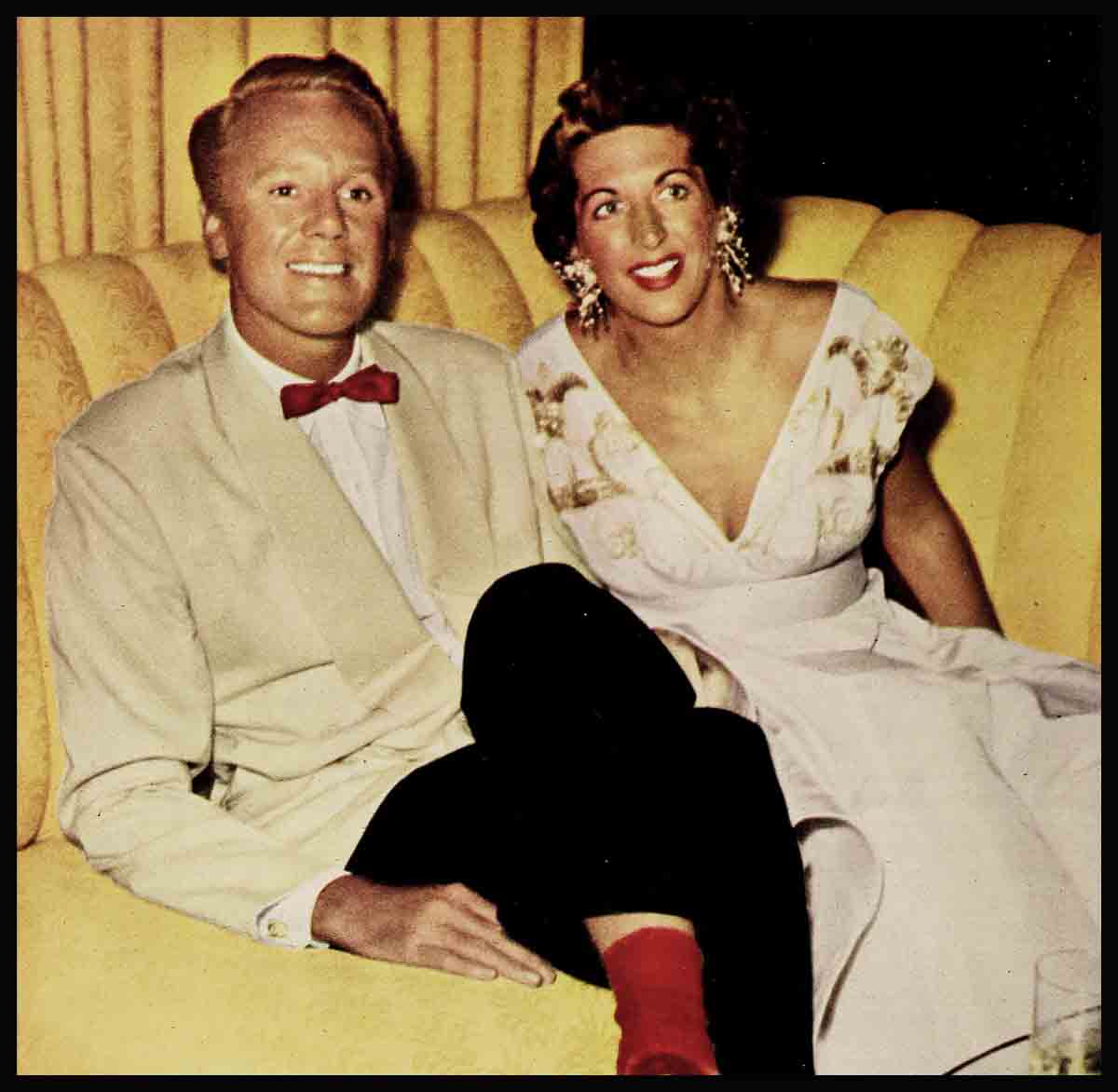
State Of The Union—Van Johnson
Dear Van:
It’s been several days since we talked, and as I’ve got to make a report to the editors of MODERN SCREEN on our discussion, I thought I’d better re-check some of the things we spoke of with you and tell you just exactly how I feel about them.
It’s a little embarrassing, Van, to have to sit down with a fellow—particularly a friend—and ask him about his marital life. But I did it and I’m glad. And your understanding that this is all just part of being a star in Hollywood, with your life an open. book, made it a lot easier for me.
First, Van, it must be faced that for the past couple of months stories have been appearing in the papers intimating that things between you and Evie are not entirely harmonious. Not entirely the way they should be.
Now even though you and Evie and most of your intimate friends knew this to be nonsense, it began to hurt. Once an intimation of anything of this sort appears in print, an actor and his wife have to begin walking on eggs, because if they show anything but extreme passion for one another in public, the tongues begin wagging harder and louder than ever. For instance, if you neglect to help Evie on with a wrap when leaving a night club some night, you might conceivably read in the papers the next morning that you had knocked her to the ground. Sadly enough, many people would believe it, for this is a city and an era of exaggeration.
It just seems as though a man in your position can’t cry NO loud enough to make people believe you. A good example of this took place a few years ago. Two columnists were talking about the separation of a prominent star and his wife. “I don’t believe it’s true,” said one columnist. “Oh, no,” said the other. “Then if it’s not true, why is he denying it?” I must admit that this makes no sense whatsoever, but you must agree with me that it happens every day.
When I first spoke to you about these rumors and asked if I could make a report to MODERN SCREEN, you gave me the first sensible answer I’ve heard in a matter of this kind. You said that you didn’t want to deny it because you didn’t want to be placed in the position of denying something that didn’t exist. And you felt that if you lent any dignity at all to such a preposterous situation, you would be abetting the acts of the item-hungry dolts who instigated it.
I thought then—and I still do—that you were perfectly right in using the only measure suitable—silence.
After reading back the above few paragraphs, being aware that this letter will appear in print, it might seem that I am performing the very act I condemn and, in a sense, I am. But I know one thing for sure. The only other alternative you do have to attempt to squelch these outrageous rumors is to put it all down on paper, go beyond the matter of separation and tell the truth about your present home situation and your future plans.
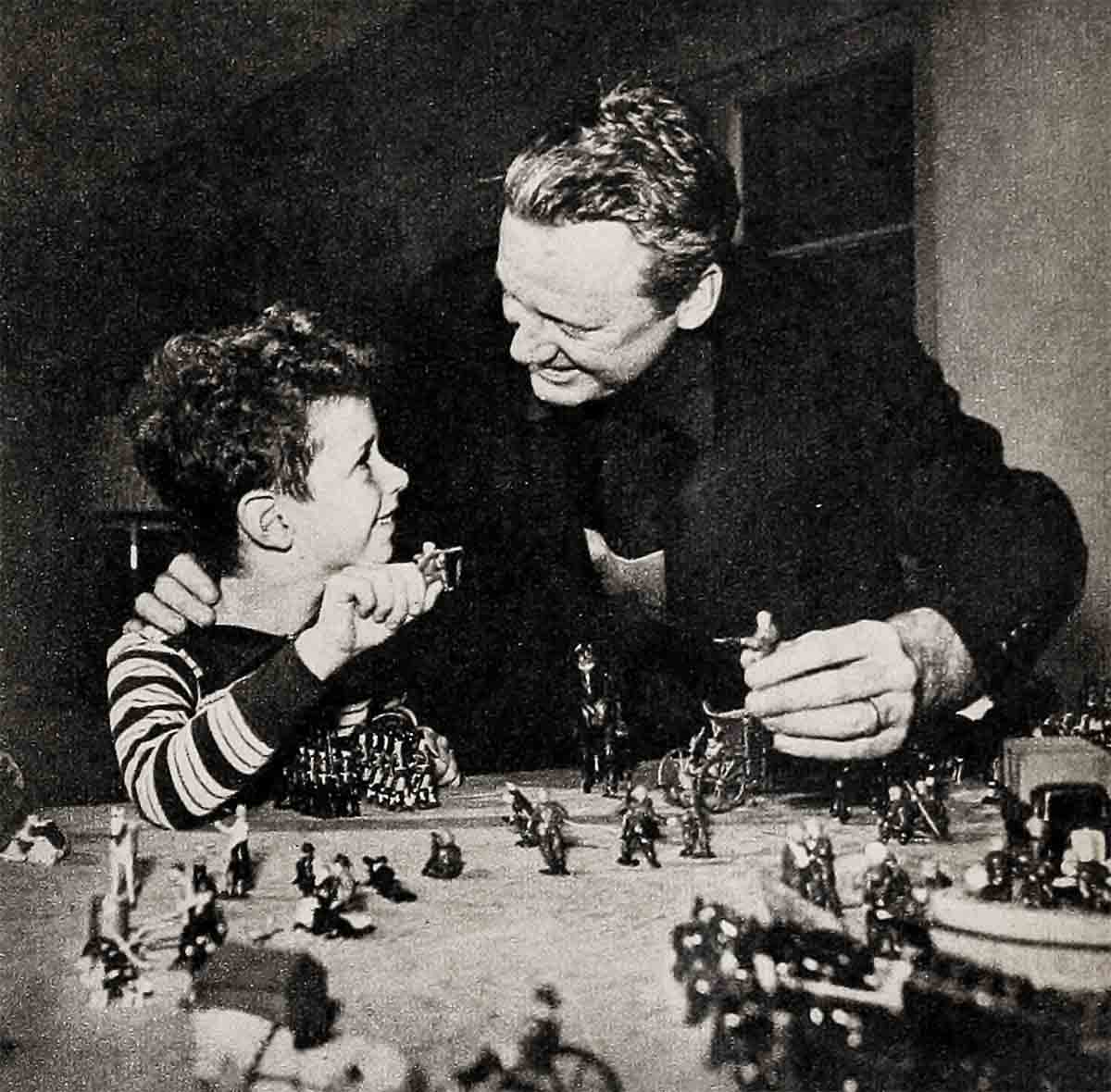
Let’s go back to the beginning, when you and Evie were married. At that time you were the rage of the younger generation of movie fans. I’m sure I don’t have to recall the buttons that were snatched off your coats and the mad mobs of admirers wherever you showed up and the time that the New York Police Department asked you not to come to their city because they were afraid they wouldn’t be able to cope with the crowd. You were the symbol of the male, unmarried movie star, the Prince that almost every one of your young lady admirers knew would some day come and take them away from their drab lives. And when you got married, they gave up and actually few of them wished you bliss.
It’s an odd thing, Van, that almost the same thing happened to the grownup columnists. You were the star they dangled over the heads of their readers, you were the dream they peddled almost daily to their young followers. And when you married they, too, resented it, more than likely, unknowingly. This, in an odd sense, is a tribute to your stature.
I think you are aware of these things. And I think because you are, you have gone out of your way to let the world know of the happiness that has lived in your house. You knew, I suspect, that a false move would bring the “ah hah’s” and “I told you so’s” that were printed recently.
First, let’s tell them how the rumors came about. I think the first one was printed shortly after you left a party early and Evie stayed on. The explanation of this is so simple that you may not be able to sell it, but I think I can. You had to get up at six o’clock in the morning to report for work at MGM, and Evie didn’t. You were with close friends, having a good time, and would. have considered it ridiculous for Evie to have left at such an early hour when she was enjoying herself. So you did what any man who loved his wife would have done. You insisted that she remain.
Naturally, a day or so later one of those tricky items appeared in a gossip column: “What’s this with the Van Johnsons. He walked out on her at a party the other night.” From your standpoint this was an impossible fantasy to challenge. You had left her there. You had apparently “walked” to your car, which was outside. The only alternative you had was to call the columnist and insist that you weren’t sore at your wife. You realized, of course, that she probably would have run another item stating that the Van Johnsons had kissed and made up, so you decided to keep your mouth shut.
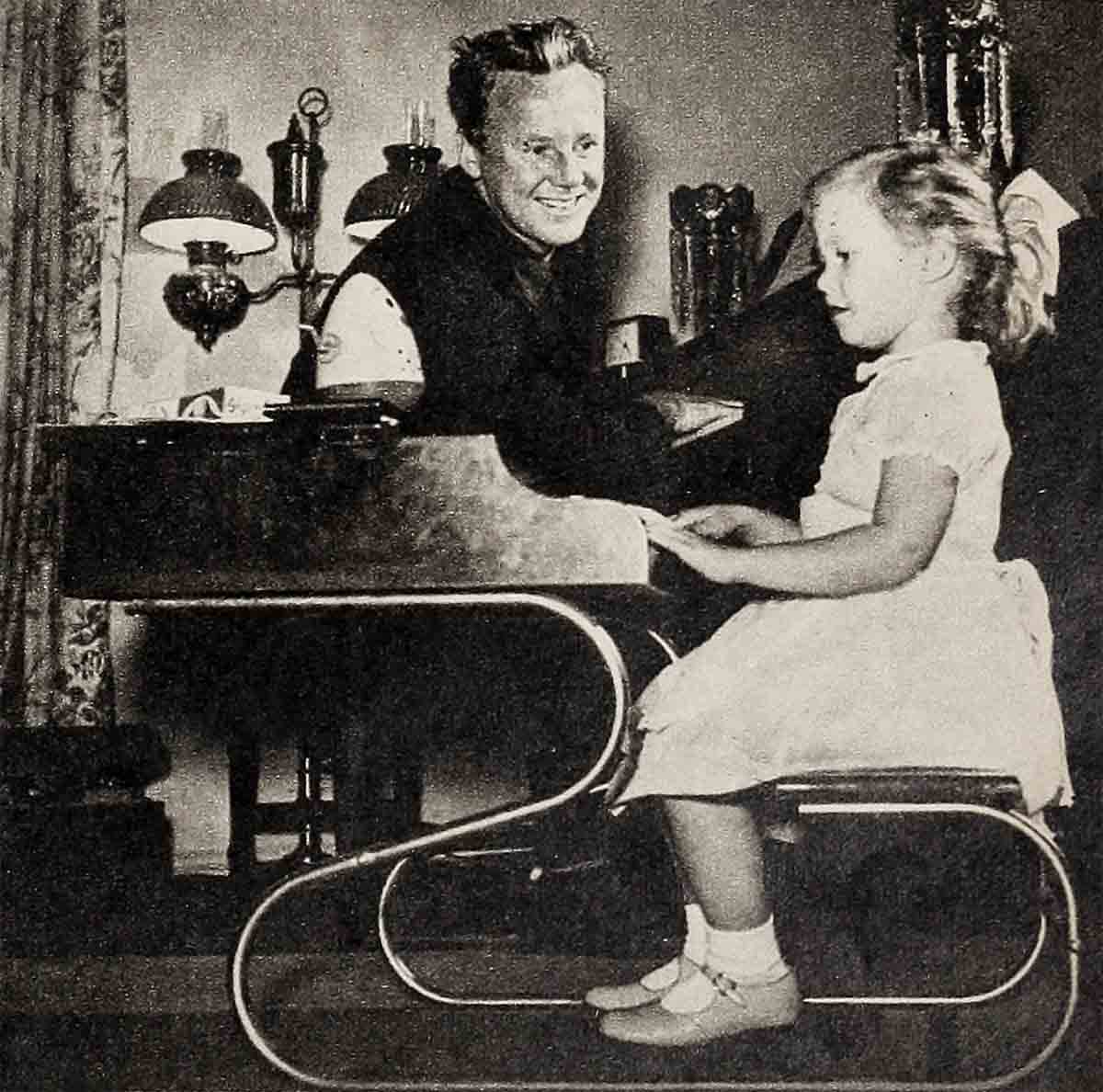
Almost the same thing happened a short time later at a night club. You and Evie were again with very close friends, and, in order to be able to crawl out of bed for work in the morning, you left before the floor show, insisting that Evie remain and see it. That, I think, was the occasion of the second item which read something like: “If there is no friction in the Van Johnson home as his friends insist, why did he stalk out of a night club on her in a towering rage the other night.” Your big mistake here, Van, was in not grinning like a discharged G.I. at the doorman as he brought you your car. He no doubt commented that you were in a filthy mood and it wound up in the papers as quoted above.
The Hollywood bandwagon makes the bandwagons the politicians leap on at political conventions look like go-carts. True news is scarce enough in Hollywood, so that a columnist reading a rumor in a rival’s pillar must immediately steal it for his own. This, then, means that other incidents aren’t particularly necessary. The gossipers resort to the time-honored custom of back-tracking. A typical example of back-tracking is this: “This sudden exposure of a rift between the Van Johnsons is no news to us. You may recall we itemed here six months ago as follows: ‘Evie Johnson attended Barbara Stanwyck’s party alone. Van was out of town on location.’ We could have told you the real reason at the time but we were sworn to secrecy.”
I’m sure you and Evie must have discussed some dignified manner of handling the situation. You couldn’t hire a publicity man, because then you’d read that the Van Johnsons have hired a press agent to handle the details of their divorce in a nice manner. You don’t dare call up one columnist and lay all the facts as presented here on the line, because all of his rivals would immediately denounce him as a fake.
I would like to quote you in MODERN SCREEN, Van, as saying, simply, “I love my wife, I love my children. I have never been happier in my life, and I look forward to many years of happiness for all of us together.”
This may not do the trick, but I think it Tin; is the least a man can say.
We can, however, talk about the future, as you and I did at lunch. You are at a point in your career when you might make some changes. You have one more year to go on your MGM contract and you are thinking of what might happen if you didn’t sign another long-term contract. While it involves important business decisions, it is also a fun time. And I personally know that whatever you do, Evie and the kids will play a most important part in the decision you make. If you sign the contracts being offered you, you will have absolute financial security for the rest of your life, because you’re the kind of actor who will be able to work until you’re older than Spencer Tracy. And MGM is willing to back this with money. But it will also mean that you must spend the greater part of your time—and the kids’ formative years—in Hollywood.
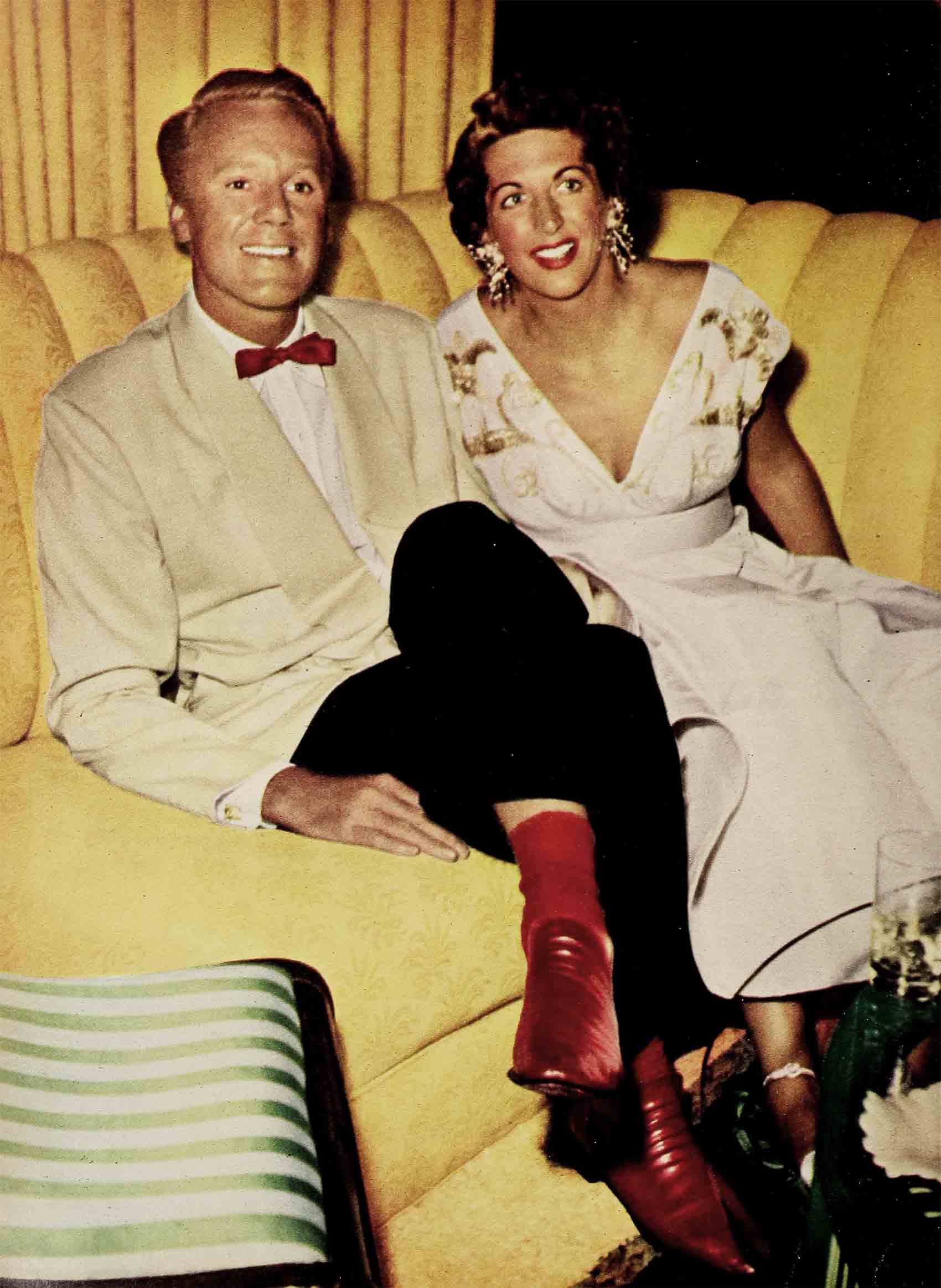
I remember the expression on your face when you told me that you wanted them to see the seasons change as you did when you were a boy. That they will never see in Southern California. You told me you’d like to live for a while in a different place, maybe Connecticut, maybe New York or Nantucket. You said you’d like to take your family to Europe and get a big car and take your time and drive through all the countries you and Evie and the kids now read about. And you didn’t want any pressures, no sudden wires from a company that was paying you a big salary, to check out of a Swiss inn and be on a set in makeup on Friday morning.
You told me that maybe you’d like to go back to Broadway and do a play, possibly a musical, because that’s where you came from and you’ve never gotten it out of your blood. You said you’d like to spend more time with your folks and Evie’s folks and get to know them all again. None of these things will be possible if you sign a long-term exclusive deal, and so you think of them a lot. And when we spoke of them, I was impressed with one thing. Your complete selflessness. You expressed a humble gratitude to Hollywood for the good things it had given you and you never once said you might like to do something without first weighing its possible effect on the happiness of Evie and the children. It’s just too doggone bad that everyone doesn’t have the opportunity to hear you say these things as I did.
I know, Van, that at the moment you’re rather troubled. But I can foresee nothing but the best for you. When a man feels the good things as strongly as you, he cannot fail to be rewarded. If it must be your decision to continue making pictures at the rate you’ve been making them—and I must inject here that your films are better with each succeeding one—you will find a way to adjust your family life to Hollywood’s exacting formula. If you decide to make a change, you will also be able to fit your pattern for happiness into a new environment.
From the time the movies began, magazine writers have been advising actors. The advice is generally given in the form of a letter from the editor. Now I don’t want to give the impression that ‘many of these letters are not entirely constructive, but I do not want this to be like most of them, the chiding type. I can remember way back when editors, via open letters, were advising Pola Negri to stop making a fool of herself over that nothing-of-a-new-boy Valentino, and sternly warning the virile young male stars of the day to keep off polo ponies or wind up with pulpy collar bones. And advice was always freely given. Garbo was advised to speak up. Cooper was advised to run when he saw that spitfire Lupe Velez coming his way. Most of this counsel was administered with the best of intent, but I’ve always cringed when I read these notes because I knew the main reason for the gab was to sell magazines. I, therefore, hesitate to advise you for fear that I fall into the category of the fellow who says something for the effect it will have on a newsstand sale.
But here I go.
I think, Van, that what you do is separate your personal life entirely from your professional life. By that I do not mean that you must not pose for photographers or grant interviews to writers. I mean, specifically, that you must accept as part of your professional life a certain amount of publicity that at times will hurt. This you will find impossible to avoid. But you must learn that in Hollywood the pen is not a damaging instrument and that words tapped out on an Underwood cannot actually alter a situation.
There is in your home a sanctity that prevails in all good homes. And this you must preserve by keeping secret the important things that happen there. Among these important things are the quarrels that will, of course, take place between you and Evie and your kids. They are part of living together and must be secret because no man can be asked to share his family with the world. On the other hand, almost any move that you make of a public nature, such as a decision to take an extended trip, buy Evie a new Cadillac, sell your house, or capture a burglar, belongs to the public, because you are a celebrity and news.
It is a difficult thing sometimes to separate one’s personal and professional life. But only by doing so can an actor protect his family from the ravages of the scandalmonger. You must achieve a state in which you expect to read painful gossip and ignore it, even laugh about it at your own fireside. Untruths must be treated as untruths and never given better recognition.
It is an old joke in Hollywood that a famous actor and his wife were just about to drop off to sleep with the radio turned on when a radio gossiper made the astonishing announcement that she was at that moment in Las Vegas applying for a divorce. The husband leaned over, turned off the set, and before dropping back on his pillow, kissed his wife and said: “Try not to get an expensive lawyer, honey, we’re nearly broke. I spent a fortune today on your anniversary present.”
There will always be gossip of this type in Hollywood, always be men and women who make mountains of type out of molehills of rumor. In the main they have no particular axes to grind, nor are they malicious in their intent. They just suffer from the disease we all carry in this business, the fear that our competitors will have the news first. And the classic symptom of the ailment is jumping the gun. Until this is understood and accepted, a star can go out of his mind trying to keep track of his own actions in the press.
Well, Van, this letter got longer than I thought it would. And it became a lot more pompous than I had hoped it would. But I just wanted to make clear what has been a jumbled mess of conflicting reports and rumors. I hope I have done so. You may not like what I have written because it repeats again the lies you hate, but I feel that only by telling what the lies are, showing how they originate and demonstrating the technique of exaggeration, can they be truly identified and made impotent.
I hope the next time we talk it will be on a better and happier subject. Maybe in Paris or Spain or Connecticut or New York, maybe backstage in a big theatre in your dressing room with you waiting impatiently for your music cue. Or maybe even in Culver City where you will be known as the oldest employee on the lot. But no matter where it is, Ill be looking forward to it. My love to your beautiful wife and your wonderful kids—and my wish for your continued happiness and harmony.
THE END
—BY JIM HENAGHAN
It is a quote. MODERN SCREEN MAGAZINE NOVEMBER 1952


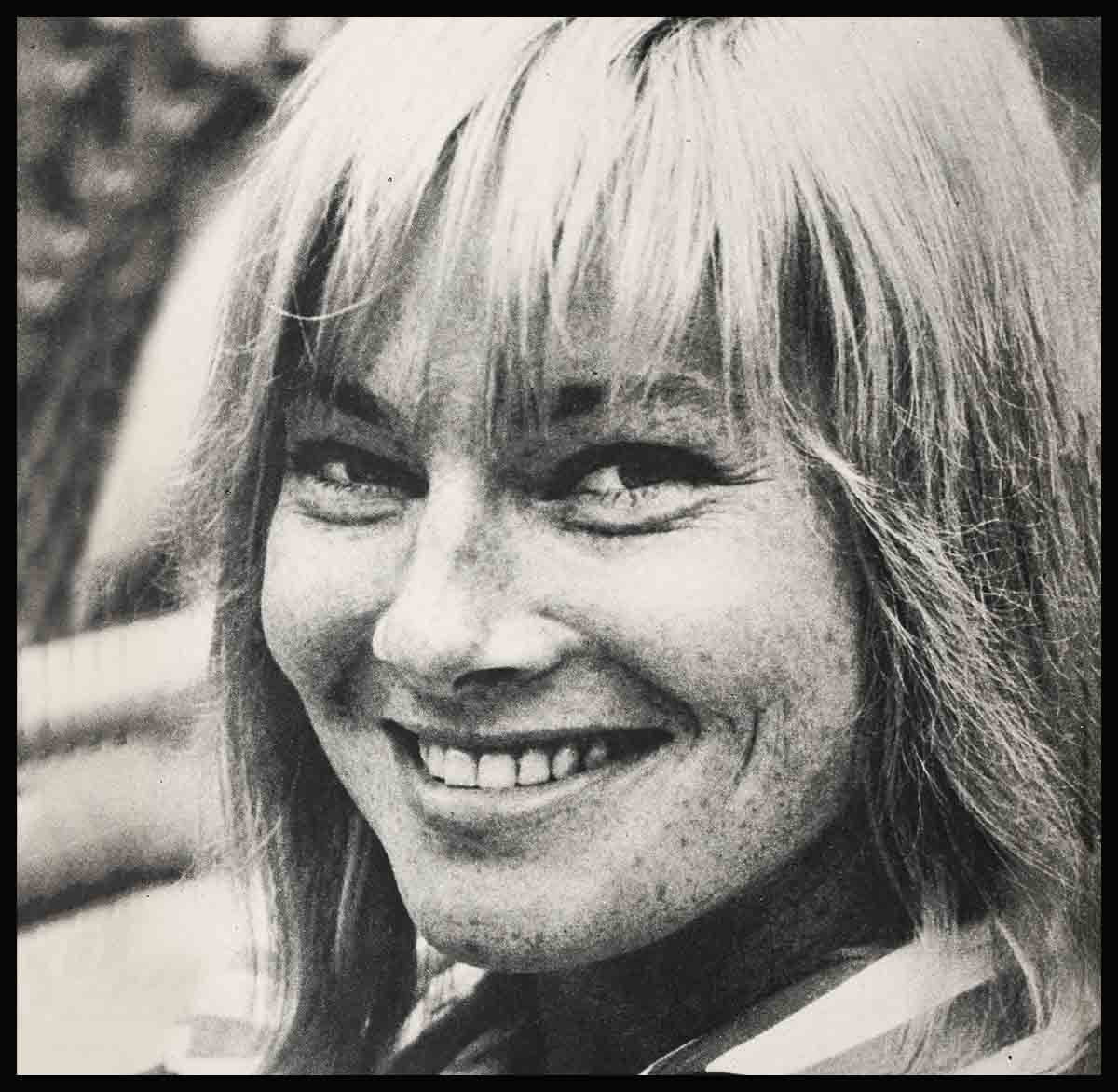

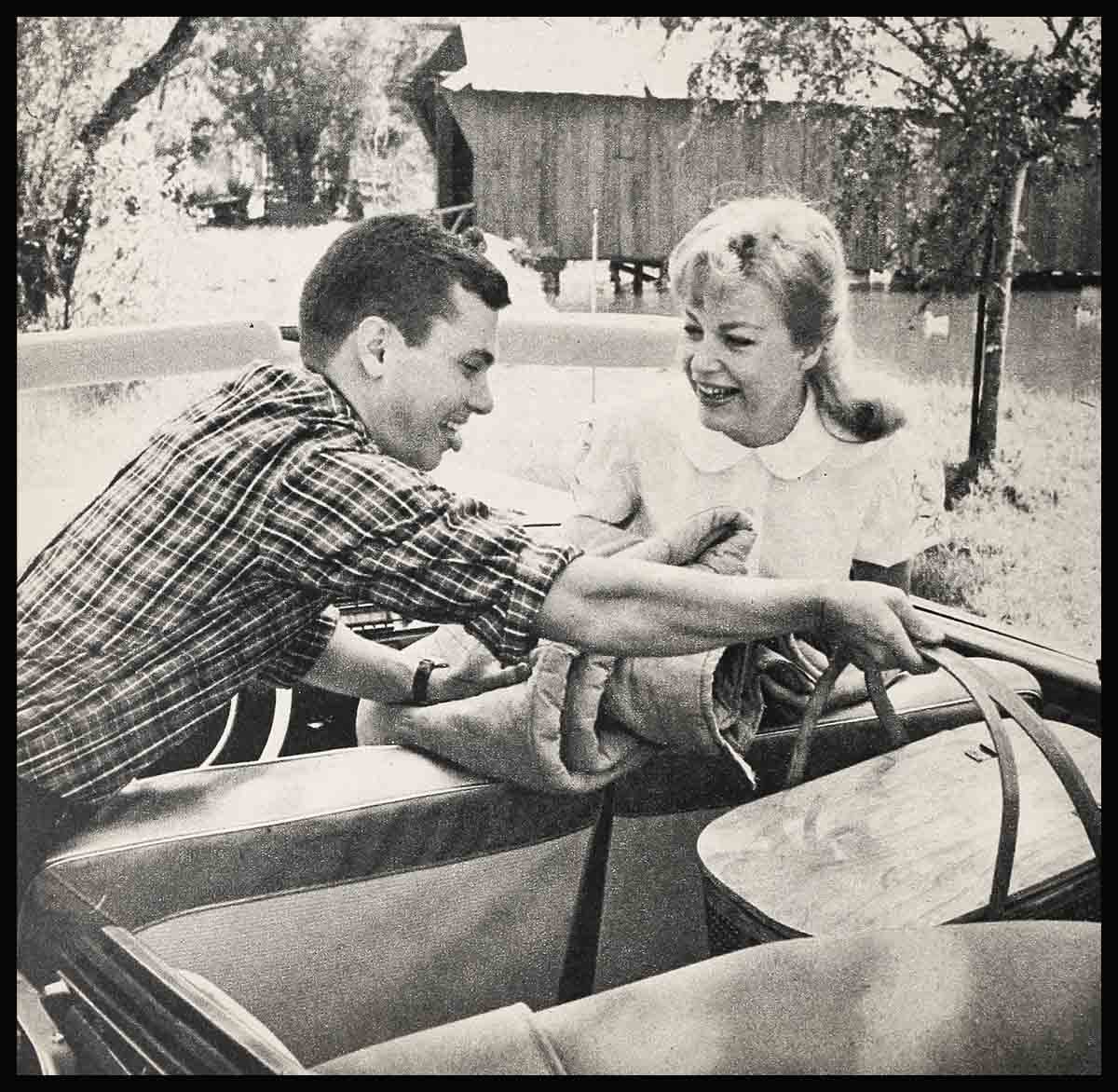
No Comments